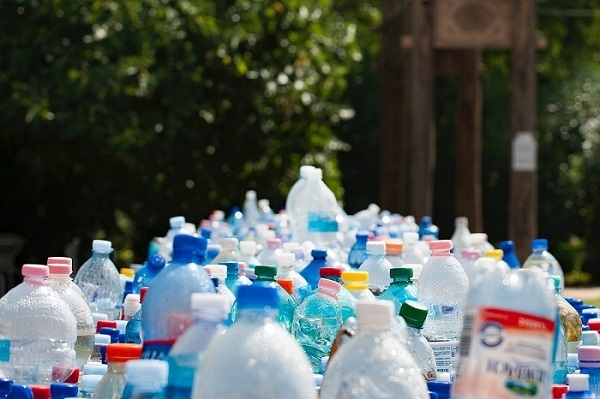EarthTalk®
From the Editors of E – The Environmental Magazine

Only time will tell if a 2019 agreement signed by 170 countries to “significantly reduce” their use of plastic by 2030 will hold water. Credit: mali maeder, pexels.com.
Dear EarthTalk: Why haven’t the governments of the world come together to ban or limit the production of plastics globally like they’ve done to reduce ozone depleting chemicals in the 1980s and greenhouse gasses more recently? — Peter B., Wallingford, CT
Plastic, originally hailed for its longevity and hygienic single-use properties, is one of the newest battlegrounds for environmentalists and world governments.
Though bans of some forms of plastic exist in more than 60 countries around the world, a global ban has proven to be elusive. In 2019, 170 countries voted to “significantly reduce” their use of plastic by 2030 at the United Nations’ Environmental Assembly in Nairobi, Kenya.
This agreement, though, was non-binding, and mostly targeted ‘throw-aways’ such as plastic bags, ignoring other forms of plastic pollution so as to serve more as a band-aid than a cure to this prolific problem.
The global scale of plastic pollution is mind-boggling, but necessary to understanding the importance of a world-wide ban. Microplastics can give a sense of how entrenched plastic has become in the interwoven web that is our global food system.
According to the United Nations’ Environment Programme (UNEP), microplastics—pieces of plastic smaller than 5mm—can easily be ingested by animals such as fish, and end up on people’s dinner plates because of the prevalence of pollution in the world’s oceans.
Plastic can take 1,000 years to decompose, meaning that every piece of plastic that has ever been created still exists, and only continually gets smaller and smaller.
National Geographic reports that even the Mariana Trench, the deepest spot in the world’s oceans, has not been spared. A plastic bag found down there, far removed from any human activity, shows just how widespread plastic pollution is globally.
The sheer ubiquity of plastic has meant that even well-meaning and well-executed previous bans on plastics on a regional scale have hardly made a dent.
The World Economic Forum notes that Canada’s ban on single-use plastic, for example, promises zero plastic waste there by 2030, echoing the non-binding agreement of the United Nations in 2019.
However, environmental advocates worry that 2030 is too far away a goal, and that may be part of the reason why, on March 2, 2022, the United Nations Environmental Assembly passed the world’s first international and legally binding agreement to end plastic pollution fully by 2024.
Inger Anderson, Executive Director of UNEP, lauded the deal as “the most significant environmental multilateral deal since the Paris Accord.”
This treaty calls for regulation on the “full life-cycle” of plastic, from production to decomposition, and is the first of its kind to unite 173 nations in combating plastic pollution. “Against the backdrop of geopolitical turmoil, the UN Environment Assembly (UNEA) shows multilateral cooperation at its best…pollution has grown into an epidemic,” says Espen Barth Eide, Norway’s minister for climate and environment, and president of UNEA. “With today’s resolution we are officially on track for a cure.”
Coming to a consensus around this agreement represents a unifying moment in world history for stepping towards a greener and healthier Earth. Of course, the treaty will take some time to be adopted widely, so proactive steps like using reusable bags and phasing out single-use plastics are still important when looking at decreasing our global use of plastics.
CONTACTS:
Toward A Global Plastics Treaty, https://www.undp.org/ghana/publications/towards-global-plastics-treaty-0
Global Plastics Treaty Now! https://engage.us.greenpeace.org/onlineactions/l8QA7ZmGwEyiBE9ZXpwInw2
Stop Plastic Pollution, https://www.nrdc.org/issues/stop-plastic-pollution
EarthTalk® is produced by Roddy Scheer & Doug Moss for the 501(c)3 nonprofit EarthTalk.
See more at https://emagazine.com
To donate, visit https//earthtalk.org
Send questions to: question@earthtalk.org
